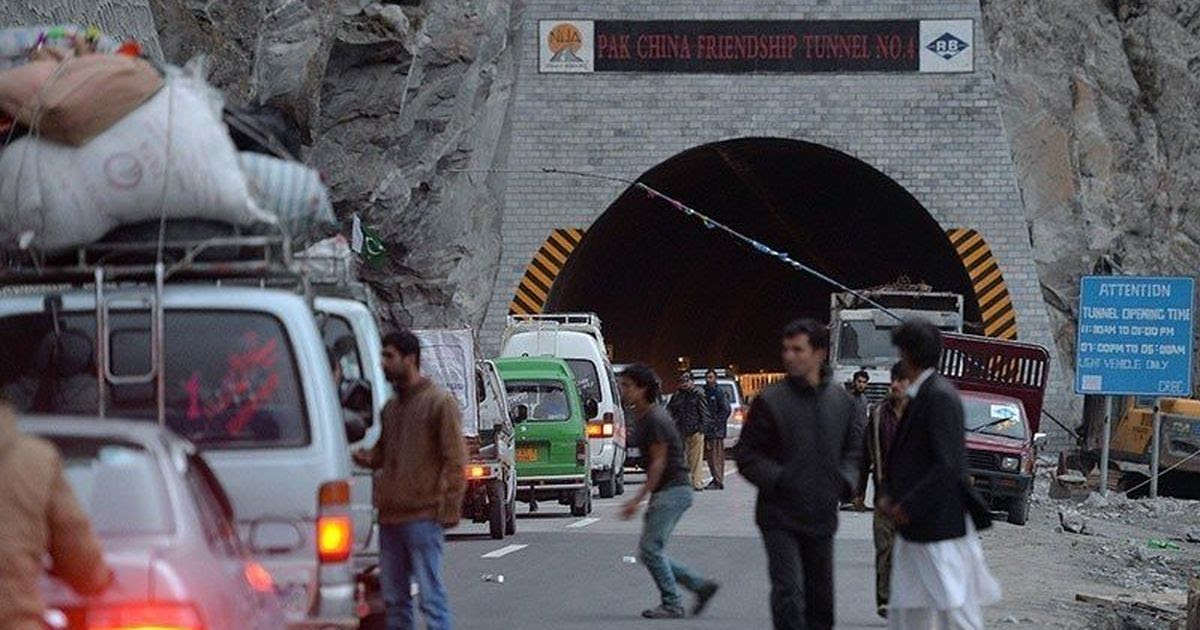 Leaders of 29 countries attended the high-profile Belt and Road Forum in Beijing over Sunday and Monday even as India boycotted it over its objections to the China-Pakistan Economic Corridor – a $54-billion infrastructure project connecting Gwadar in Pakistan to Kashgar in Xinjiang – that passes through Gilgit-Baltistan, which India considers its territory. The spokesperson of the Ministry of External Affairs, Gopal Bagalay, said “no country can accept a project that ignores its core concerns on sovereignty and territorial integrity”. Though China has invited India to be a part of its Belt and Road Initiative – which would give the world the largest ever platform for economic, social and cultural cooperation across all of Eurasia – New Delhi wants such participation on its own terms. However, both China and Pakistan continue to seek India’s entry. Speaking at the Belt and Road Forum, Pakistan Prime Minister Nawaz Sharif said the China-Pakistan Economic Corridor should not be politicised while Chinese President Xi Jinping said “all countries should respect each other’s sovereignty and territorial integrity”.The Belt and Road Initiative has come a long way since it originated from two speeches made by Xi in Central Asia in 2013 in which he outlined plans for China’s global outreach through connectivity and infrastructure development. The mega road, maritime and infrastructure initiative includes land corridors from China through Central Asia and Russia to Europe with spurs to West Asia and to Pakistan – the China-Pakistan Economic Corridor. The project is a blend of economic, developmental, strategic and geopolitical motives, the most ambitious global infrastructure project ever envisaged by one country.
Leaders of 29 countries attended the high-profile Belt and Road Forum in Beijing over Sunday and Monday even as India boycotted it over its objections to the China-Pakistan Economic Corridor – a $54-billion infrastructure project connecting Gwadar in Pakistan to Kashgar in Xinjiang – that passes through Gilgit-Baltistan, which India considers its territory. The spokesperson of the Ministry of External Affairs, Gopal Bagalay, said “no country can accept a project that ignores its core concerns on sovereignty and territorial integrity”. Though China has invited India to be a part of its Belt and Road Initiative – which would give the world the largest ever platform for economic, social and cultural cooperation across all of Eurasia – New Delhi wants such participation on its own terms. However, both China and Pakistan continue to seek India’s entry. Speaking at the Belt and Road Forum, Pakistan Prime Minister Nawaz Sharif said the China-Pakistan Economic Corridor should not be politicised while Chinese President Xi Jinping said “all countries should respect each other’s sovereignty and territorial integrity”.The Belt and Road Initiative has come a long way since it originated from two speeches made by Xi in Central Asia in 2013 in which he outlined plans for China’s global outreach through connectivity and infrastructure development. The mega road, maritime and infrastructure initiative includes land corridors from China through Central Asia and Russia to Europe with spurs to West Asia and to Pakistan – the China-Pakistan Economic Corridor. The project is a blend of economic, developmental, strategic and geopolitical motives, the most ambitious global infrastructure project ever envisaged by one country.
Valley interest
The China-Pakistan Economic Corridor has drawn a lot of attention in the Valley too, for its potential to help in the resolution of the Kashmir dispute. In March, a seminar titled “Impact of China-Pakistan Economic Corridor in Kashmir” was organised in Srinagar by The Kashmir Institute, a think tank. Andrew Small, the author of The China-Pakistan Axis: Asia’s New Geopolitics, addressed the gathering via Skype. Small predicted that the corridor would have a very consequential impact on the overall framework of India-Pakistan relations, and China’s role and equity in these disputes.
The seminar was the first such attempt in Kashmir to get Kashmiris thinking about the potential impact of the China-Pakistan Economic Corridor on the state and the lingering conflict over it. The growing public interest in the Valley in this project is the result of a collective expectation that it will introduce new geopolitical factors
That in the short or long-term will force a resolution of Kashmir.
Already, new factors unleashed by the project are straining the existing geopolitics of the region. Islamabad is considering granting statehood to Gilgit-Baltistan following China’s alleged insistence on legal cover for its investment in the disputed region, a part of Jammu and Kashmir claimed by India as part of its territory. New Delhi has already objected to foreign investment in Gilgit-Baltistan, the entry point for the China-Pakistan Economic Corridor, which has further complicated the situation for Beijing.
Islamabad’s statehood move faces opposition not only from New Delhi but from Kashmiri separatists too. After New Delhi termed Pakistan’s attempt to declare Gilgit-Baltistan its fifth province “entirely unacceptable”, a Hurriyat statement used more or less the same words to caution Islamabad against any such move.
However, for now, we are only witnessing the beginnings of this global project. And we can only hope that in the long term, it leads to an integrated South Asia that in turn helps create conditions for a permanent resolution of Kashmir.

